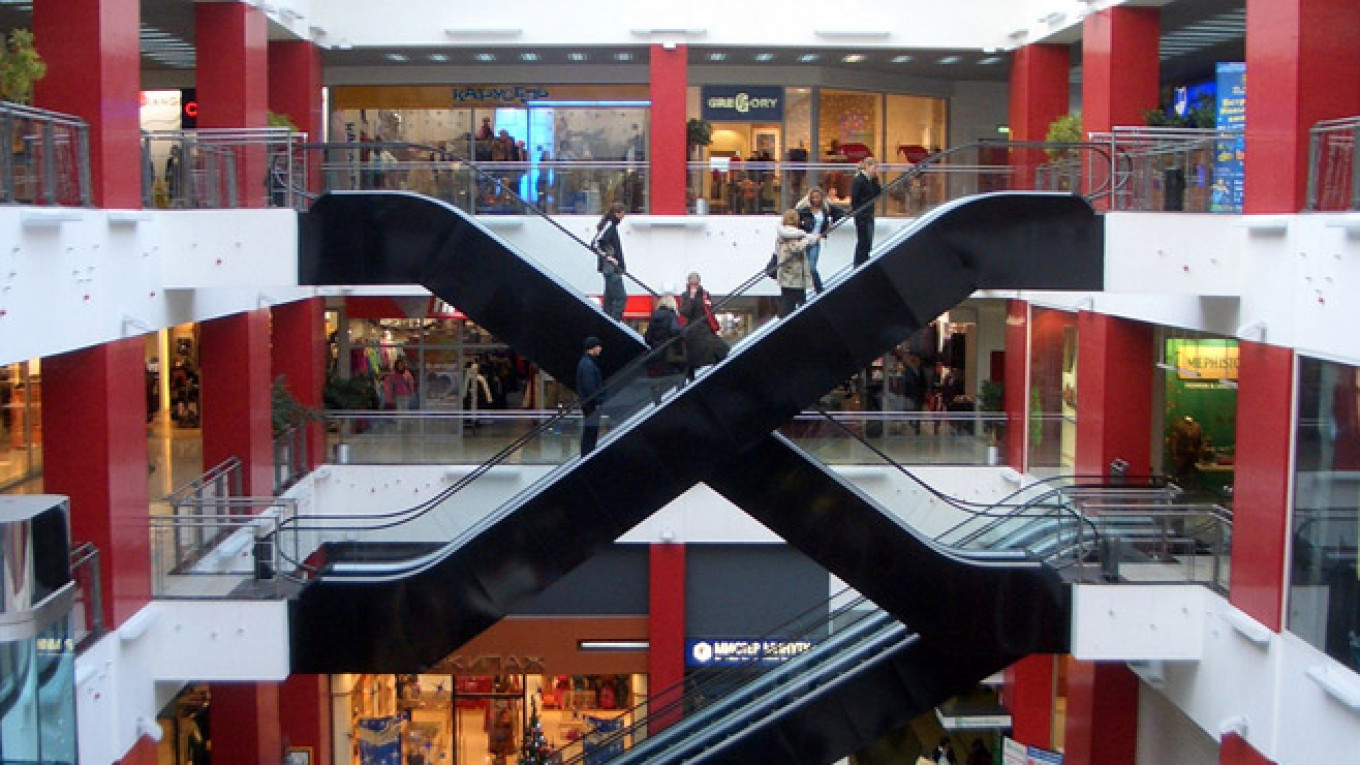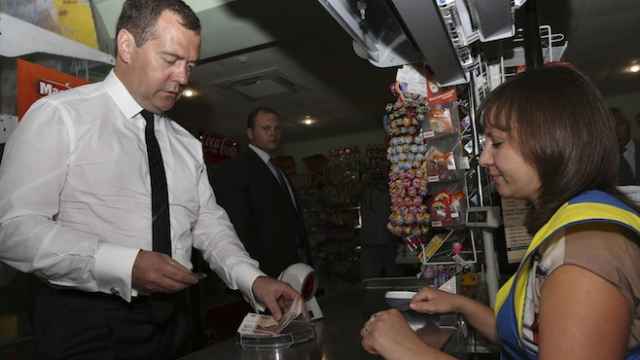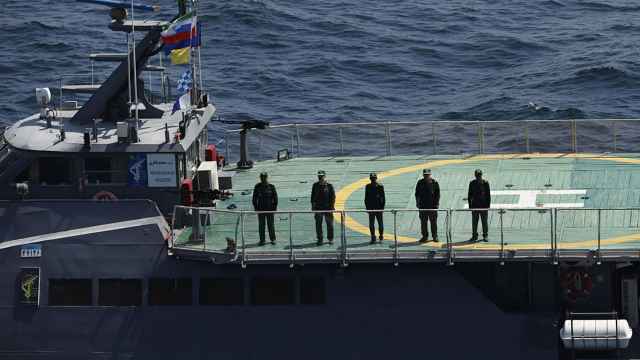Nearly 25 percent fewer people visited Moscow's malls in the week leading up the start of the school year than in the same period of 2013, a survey said, indicating that Western sanctions and an economic slowdown are hitting Russian consumer demand.
A report by consumer market research firm Watcom cited by business daily Vedomosti found that shopper numbers were down 23 percent in the last week of August, traditionally one of the year's busiest for retailers.
Though the number of mall visitors rose slightly compared to previous weeks, the trend is still negative, said Watcom head Roman Skorokhodov, whose company based its figures on the number of consumers per 1,000 square meters of retail real estate at more than 60 Moscow shopping centers.
Consumer visits to shopping malls went down in March — when Moscow's annexation of Crimea from Ukraine prompted the first wave of sanctions against Russia — and only returned to 2013 levels in the last week of July, before dipping again in August, according to Watcom.
Yulia Zefirova, a spokeswoman for clothes store Sela, confirmed that the usual late-August surge did not materialize for her company this year, and attributed the shift to Russia's economic downturn, which has caused consumers to either go without purchases or wait for discounts.
Russia's growth rate slowed sharply last year, and most forecasts for 2014 oscillate between zero and 0.5 percent. Meanwhile, the threat of further sanctions over Ukraine foments uncertainty and hampers investment.
Finnish department store operator Stockmann, whose first quarter revenues fell 15.4 percent year-on-year to 145.5 million euros ($188 million), said in mid-August the situation on the Russian market had become complicated, with the ruble weakening and the future of the economy unclear.
The economic quagmire has convinced British fashion retailer New Look to postpone plans to set up a joint enterprise with a Russia franchise, while Adidas scrapped plans to double the number of stores in the country.
The malaise appears to have been felt not only by clothes shops. M.Video — Russia's biggest home electronics retailer, 90 percent of whose stores are in shopping malls — saw the flow of customers into its branches drop 6.1 percent in the first half of this year, according investment bank VTB Capital.
A Message from The Moscow Times:
Dear readers,
We are facing unprecedented challenges. Russia's Prosecutor General's Office has designated The Moscow Times as an "undesirable" organization, criminalizing our work and putting our staff at risk of prosecution. This follows our earlier unjust labeling as a "foreign agent."
These actions are direct attempts to silence independent journalism in Russia. The authorities claim our work "discredits the decisions of the Russian leadership." We see things differently: we strive to provide accurate, unbiased reporting on Russia.
We, the journalists of The Moscow Times, refuse to be silenced. But to continue our work, we need your help.
Your support, no matter how small, makes a world of difference. If you can, please support us monthly starting from just $2. It's quick to set up, and every contribution makes a significant impact.
By supporting The Moscow Times, you're defending open, independent journalism in the face of repression. Thank you for standing with us.
Remind me later.






